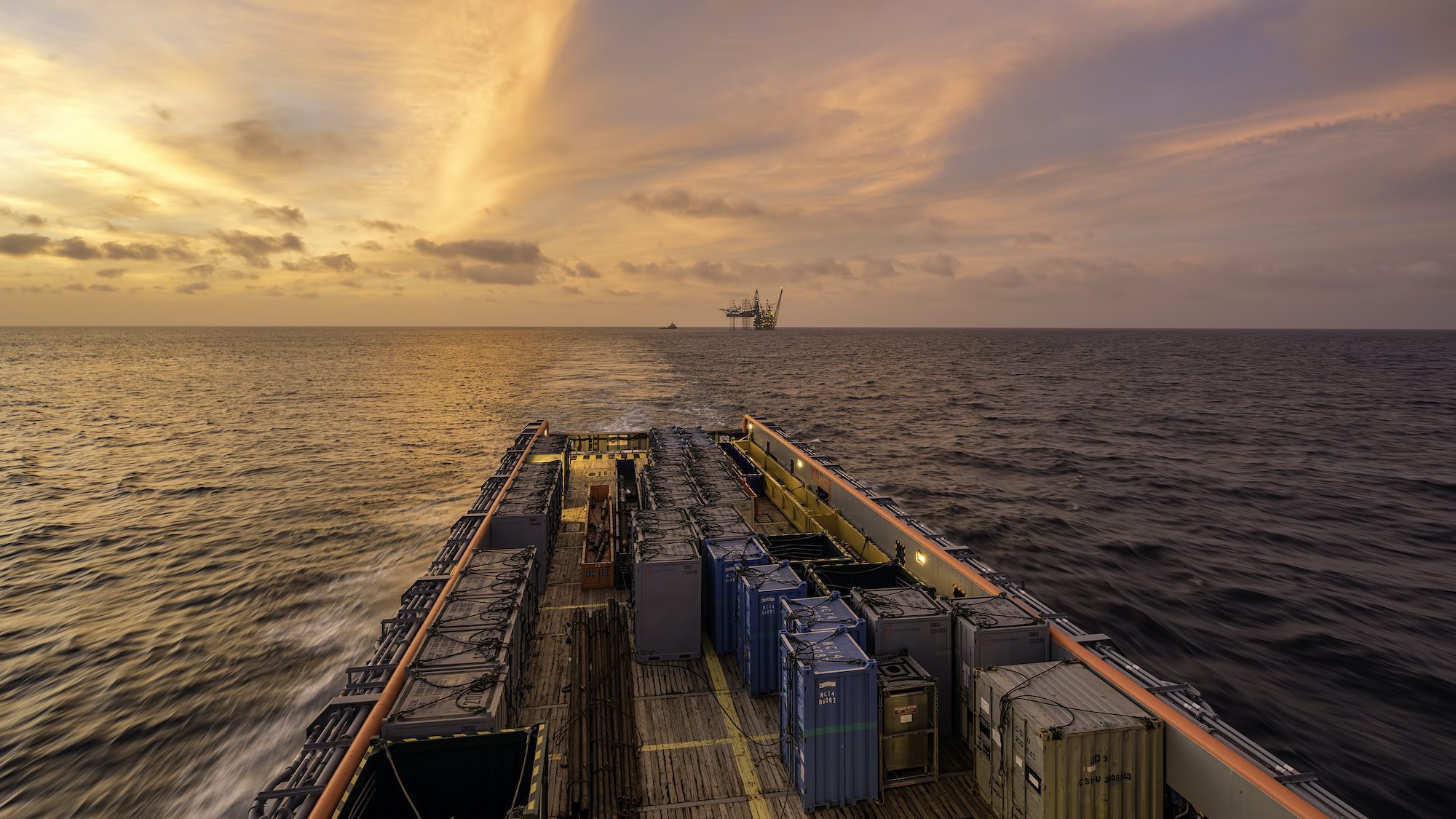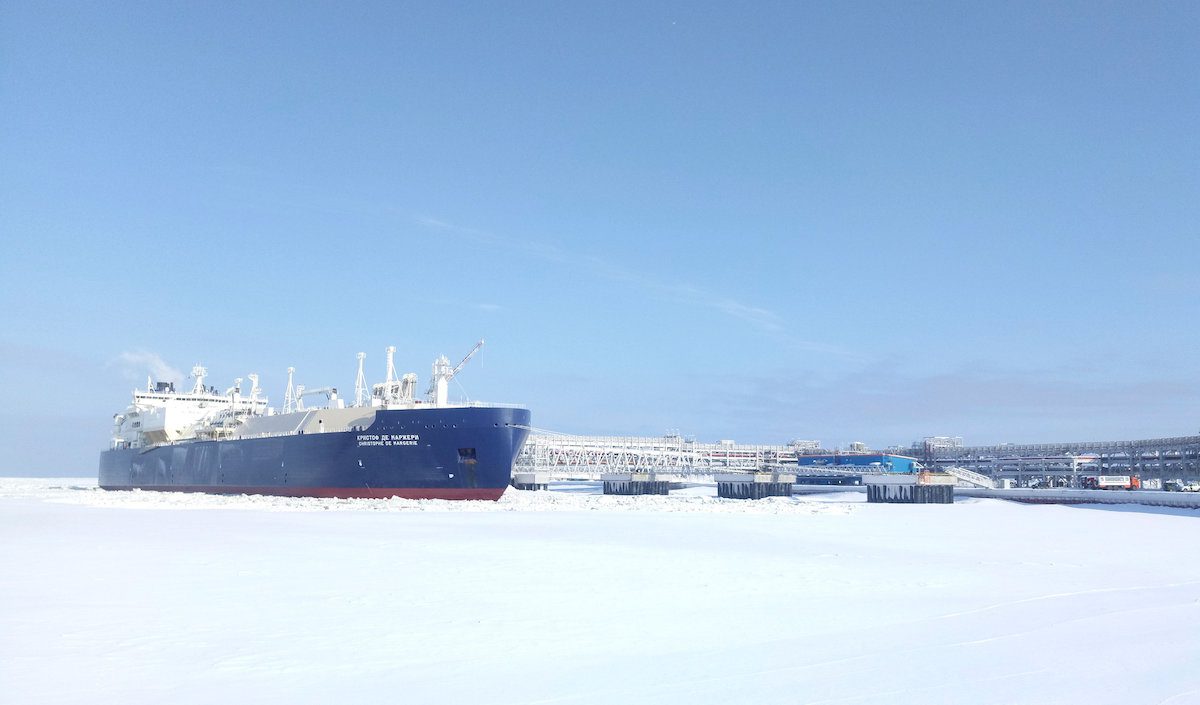By Brendan Murray (Bloomberg) Disruptions in global trade are about to go from bad to worse.
With Russia’s invasion of Ukraine early Thursday, energy costs are soaring, stocks are plunging, Western sanctions are being sharpened, and central bankers already worried about inflation face additional drags from weaker consumer confidence and bigger potential shocks to fragile European economies.
“This will not be good for energy prices, production, or trade,” said Joseph Francois, managing director at the World Trade Institute. “Certainly we will have, and are already seeing, a spike in energy prices. This will have knock on affects on production, especially in Europe, which will dent the recovery of trade from the Covid recession.”
Russia is the world’s 16th-largest goods exporter, with petroleum, coal and gas being the biggest categories. Ukraine ranks 48th, led by shipments of grain and iron ore, according to 2020 data from the World Trade Organization.
“Undermining the rule of law and increased risk always means increased uncertainty and costs for firms operating in trade,” says Hanna Norberg, founder of TradeEconomista. “Hopefully though, the rest of the world will come together and show a unified front in terms of hard-hitting sanctions towards Russia that will work as a deterrent from further escalation and humanitarian as well as economic losses.”
For global supply chains, “a kinetic conflict in Ukraine could generate a wide range of challenges,” Chris Rogers, an economist in the U.K. with Flexport, says in a report this week. The risks extend beyond higher energy costs to include disrupted air space in the region, higher rates for shipping insurance and cyber attacks, he says.
These stories help explain the wider fallout:
- Energy spike: Oil surged above $100 a barrel for the first time since 2014, triggering fears of a disruption to energy exports at a time of already tight supplies.
- Key commodities: Beyond gas, Ukraine has a vast network of infrastructure that’s key to supplying raw materials from crops and steel to Europe and beyond.
- Economic headwinds: The energy-cost spike represents a double-blow to the world economy by further denting growth prospects and driving up inflation
- Punitive sanctions: The U.S. and Europe have pledged a harsh package of penalties that go beyond punishments inflicted on Moscow after the Russian annexation of Crimea in 2014.
Price Shock
In the immediate vicinity, there are already shipping disruptions. Richard Meade, editor of Lloyd’s List tweeted that vessel traffic in and out of the Sea of Asov looks to be affected by the conflict.
Peter Sand, chief analyst with Xeneta, said Russian ports on the Black Sea account for 15% of container imports and exports, its Baltic ports account for close to 50% and its far eastern ports – which are the least likely to get impacted — account for 35%.
“The important thing for all in shipping is to stay clear of breaching sanctions,” Sand said. “This goes for operators, owners and shippers.”
While the full impact of western trade sanctions remains to be seen, they’re likely to have “less bite than a decade ago,” according to University of St. Gallen professor Simon Evenett. Over the past 10 years the percentage of Russia imports sourced from the European Union has fallen to 34.2% from 38.3%, while the share of Russian imports sourced from China has risen to 21.4% from 15.7%, he said.
David Henig, a director at the European Centre for International Political Economy, said other effects could be far-reaching.
“I suspect though that this will encourage some of the trends we already see, such as supply-chain resilience, and further fragmentation of rules away from WTO and towards EU and U.S. in particular strengthening their own versions of rules,” Henig said.
Charted Territory
Charleston Congestion
South Carolina port has seen a steady rise of container ships in 2022
The number of container ships waiting at the ports of Houston and Charleston, South Carolina, reached new pandemic highs as importers looking to avoid bottlenecks on the U.S. West Coast encounter growing congestion in alternative gateways. At least 19 vessels were either moored or anchored off Houston as of Wednesday, continuing the Gulf Coast port’s record volume from last year, according to vessel data compiled by Bloomberg since the second quarter of 2021. Charleston, which saw a record spike in container ships in January, faces several more weeks of heavy congestion. Dealing with a queue of 33 waiting ships, the marine traffic jam now exceeds neighboring Savannah’s 2021 high of 28 waiting vessels.
Also Read: Port Of Houston Sees New High in Ship Count as Congestion Worsens In The US
By
—Brendan Murray in London and Bryce Baschuk in Geneva
© 2022 Bloomberg L.P.

 Join The Club
Join The Club











